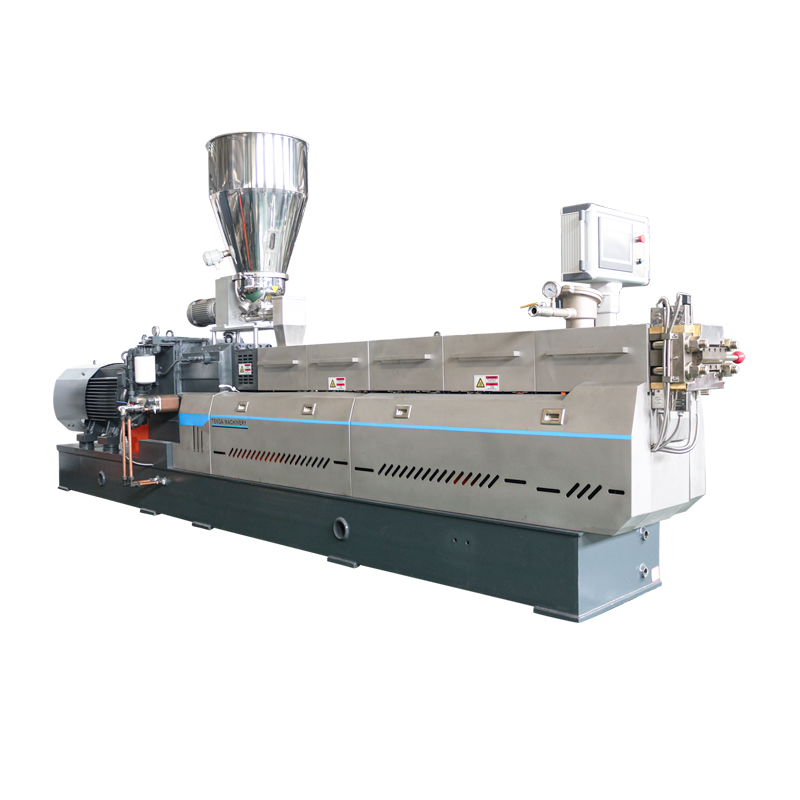Biopolymer
Biopolymer is a special plastic material produced by biological cells. Unlike synthetic plastics, which usually come from petrochemical products, bioplastics are made from natural and renewable biodegradable resources.
Bioplastics are not only suitable for various applications, but also easier to compost than traditional fossil plastics in many cases.Plastic is a synthetic material, usually extracted from petrochemical products, while bioplastics is a plastic material formed from renewable biological resources. Generally speaking, there are many natural resources that can be used to produce biopolymer products. Its raw materials mainly include the following:
(1) Polysaccharide: from starch, such as potato or corn;
(2) Cellulose: from sugar cane or sugar beet;
(3) Protein: from wheat protein, silk or wool;
(4) Several qualities: such as wood;
(5) Lipids: extracted from vegetable and used oils
The most common are polysaccharides and cellulose extracted from starch and sugarcane. In addition, protein, chitin, lignin and lipids are also used in the processing of bioplastics.
Nevertheless, it is important to understand that not all components are equally applicable to a particular application. The composition basically determines the use and function of the final product and whether it can be composted. Although disposable packaging can usually be composted at home, at least in theory, combinations of other ingredients may require industrial composting or not at all. In this regard, polymers can be divided into different types according to the resources used and whether they are degradable. According to this classification, it can be divided into three kinds of bioplastics:
-Non degradable bioplastics from renewable resources
-Bioplastics are derived from renewable resources and are indeed degradable
-Bioplastics that are actually degradable but based on petrochemical resources (e.g. polybutyrate)
The production process of bioplastics usually includes feeding and conveying system, twin-screw extrusion system, devolatilization system and a draw bar granulator. Due to the modular design of the process section and its excellent homogenization, the twin-screw extruder produced by Tengda is suitable for the wide application of bioplastics. The manufacturers of bioplastics can obtain a complete set of high-performance system in the cooperation with Tengda.
The simultaneous interpreting of biopolymers has many advantages over traditional plastic materials. Firstly, it is based on renewable biomass and does not rely on limited fossil resources. Because plants help eliminate carbon dioxide emissions from the atmosphere, they may even help reduce the carbon footprint compared to fossil plastics. In addition, some types of biopolymers can be decomposed and degraded at a specific time and under specific conditions. Because of its natural properties, bioplastics contain less toxic substances than synthetic polymers.
Although it has so many advantages, it needs to be remembered that the production process of bioplastics still requires a lot of energy. In addition, most bio based plastic products require industrial compost to be fully degraded. Because customers often cannot distinguish between bioplastics and traditional plastics, they are often thrown into the dustbin together - so in many cases, bioplastics waste will never reach the composting plant. Therefore, biopolymers are not always a more sustainable alternative to traditional plastics.
Tengda is a twin screw extruder factory dedicated into twin screw extruder R&D for more than 10 years. The biodegradable plastic extruder is now becoming the newest trend which will contribute a lot to global ecological development.
PLA/PBAT/PBS etc. biodegradable granules production line is the best seller of Nanjing Tengda Machinery. It is equipped with high-torque or ultra-high torque gearbox, which can provide more power to achieve higher production. It also adopted high wear-resistant and corrosion-resistant barrel and screw and high-strength mandrel. The unit has reliable performance and the operation is easy.
Bio economy now is an unstoppable trend. We should try our best to be the safe guard of the earth.
